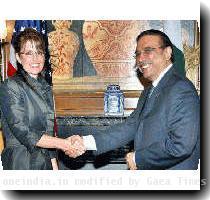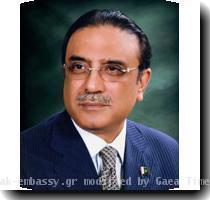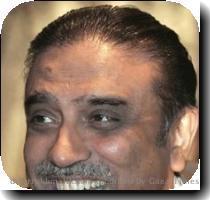Suicide bombing on Shiite procession in Pakistan’s Karachi kills 30, wounds 60
By Sebastian Abbot, APMonday, December 28, 2009
Suicide attack on Pakistani Shiites kills 30
KARACHI, Pakistan — A suicide bomber struck a procession marking a key Shiite Muslim holy day in Pakistan’s biggest city Monday, killing 30 people in an attack blamed on extremists trying to hamper the country’s fight against militancy by sparking a sectarian war.
Outraged Shiites responded to one of the worst sectarian attacks in the country this year by setting fire to buildings and vehicles at the blast site and pelting security forces with stones, a sign of frustration by the minority sect, which has suffered frequent attacks by Sunni extremist groups who regard them as heretical.
Authorities said these sectarian groups have teamed up with Taliban and al-Qaida militants waging war against the government in a joint effort to destabilize Pakistan. More than 500 people have been killed in attacks since mid-October when the army launched a major anti-Taliban offensive in the country’s northwest.
“A deliberate attempt seems to be afoot by the extremists to turn the fight against militants into a sectarian clash and make the people fight against one another,” said President Asif Ali Zardari in a statement.
The southern city of Karachi has largely been spared the Taliban-linked violence that has struck much of the rest of the country, a fact that analysts believe is driven by the group’s tendency to use the teeming metropolis as a place to rest and raise money. But the city has been the scene of frequent sectarian, ethnic and political violence.
The suicide bomber who struck Monday targeted thousands of Shiites marching through the streets to observe Ashoura, the most important day of a monthlong mourning period for the seventh-century death of the Prophet Muhammad’s grandson, Imam Hussein.
“I fell down when the bomb went off with a big bang,” said Naseem Raza, a 26 year-old who was marching in the procession. “I saw walls stained with blood and splashed with human flesh.”
Residents in apartments near the blast site tossed down body parts that had been cast into their homes from the explosion, while birds dove down to pick at the flesh amid damaged vehicles and motorbikes.
Authorities found the intact head and torso of the suicide bomber on the third floor of a nearby office building, where it had crashed through a window, said bomb disposal squad official Munir Sheikh. Some 35 pounds (16 kilograms) of high explosive were used in the bombing, he said.
Karachi police chief Waseem Ahmad said police were investigating the possibility that a second suicide bomber was also involved in the attack.
The blast killed 30 people and wounded another 60, said Sagheer Ahmad, the health minister in Sindh province, where Karachi is the capital.
At nearby Civil Hospital, relatives cried and beat their chests as the wounded lay on stretchers and beds.
Maj. Aurangzeb Khan, a spokesman for paramilitary troops who were protecting the procession, said the death toll would have been much higher if one of the soldiers had not spotted the suicide bomber and tackled him before he could enter the heart of the crowd.
“He just took him down, and the bomber detonated himself,” said Khan.
Despite the heroics, Shiites went on a rampage after the blast, smashing shops and setting fire to a market, two other buildings and many vehicles as others in the procession tried to stop them. Some roamed the scene with guns and fired into the air.
Police and paramilitary troops eventually did the same to disperse the crowd.
Karachi Mayor Mustafa Kamal appealed for calm, calling on people not to clash with security forces and emergency personnel at the site.
“That is what terrorists are aiming at,” he said. “They want to see this city again on fire.”
Several protesters who fired guns and damaged property were arrested, said Sindh’s chief minister, Qaim Ali Shah.
No group has claimed responsibility for Monday’s attack, but Interior Minister Rehman Malik pointed his finger at a cluster of militant groups, including the Pakistani Taliban, al-Qaida, Lashkar-e-Jhangvi and Jaish-e-Mohammad, that he said have a joint goal to destabilize Pakistan.
“These are people who are against democracy, against our religion, against our Pakistan,” said Malik.
The last two groups have received support from the Pakistani government in the past, but analysts say they have increasingly turned against the state as it has reduced its cooperation under U.S. pressure.
Security had been tightened across Pakistan for Ashoura, which was celebrated in other parts of the Muslim world on Sunday. The holy month of Muharram has often been marred by bombing and fighting between Pakistan’s Sunnis and Shiites.
Malik said he had appealed to the Shiite community to cancel processions for the next two days.
“That does not mean that we are trying to interfere in their religious affairs, but we are doing it for the sake of security and to save precious lives,” he said.
Monday’s bombing was the third explosion in as many days to hit Karachi, although authorities attributed a blast that wounded 30 on Sunday to a buildup of gas in a sewage pipe.
Protests broke out after that blast too, with Shiites torching at least three vehicles.
On Saturday, another blast near a Shiite procession wounded 19 people. Authorities attributed that explosion to a firecracker that was so powerful it left a crater in the road.
A suicide bomber struck a Shiite procession Sunday in Muzaffarabad, the capital of Pakistan-controlled Kashmir, killing eight people and wounding another 80. The bombing was a rare sectarian attack in an area police say has little history of militant violence.
Abbot reported from Islamabad. Associated Press writer Asif Shahzad in Islamabad contributed to this report.
Tags: As-pakistan, Asia, Asif Ali Zardari, Bombings, Islamabad, Karachi, Pakistan, Religious Strife, South Asia, Terrorism



